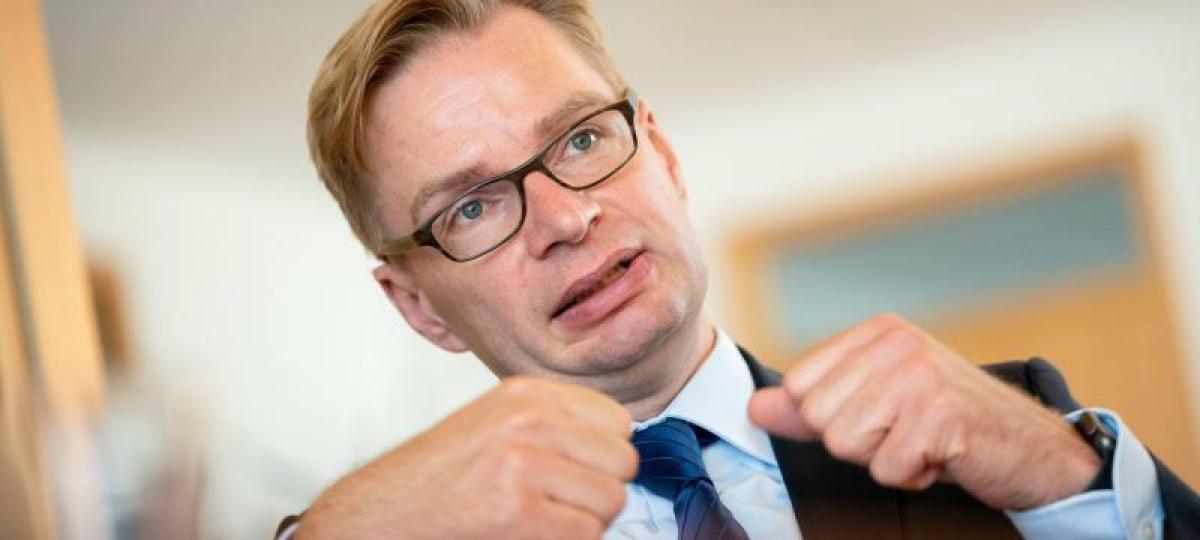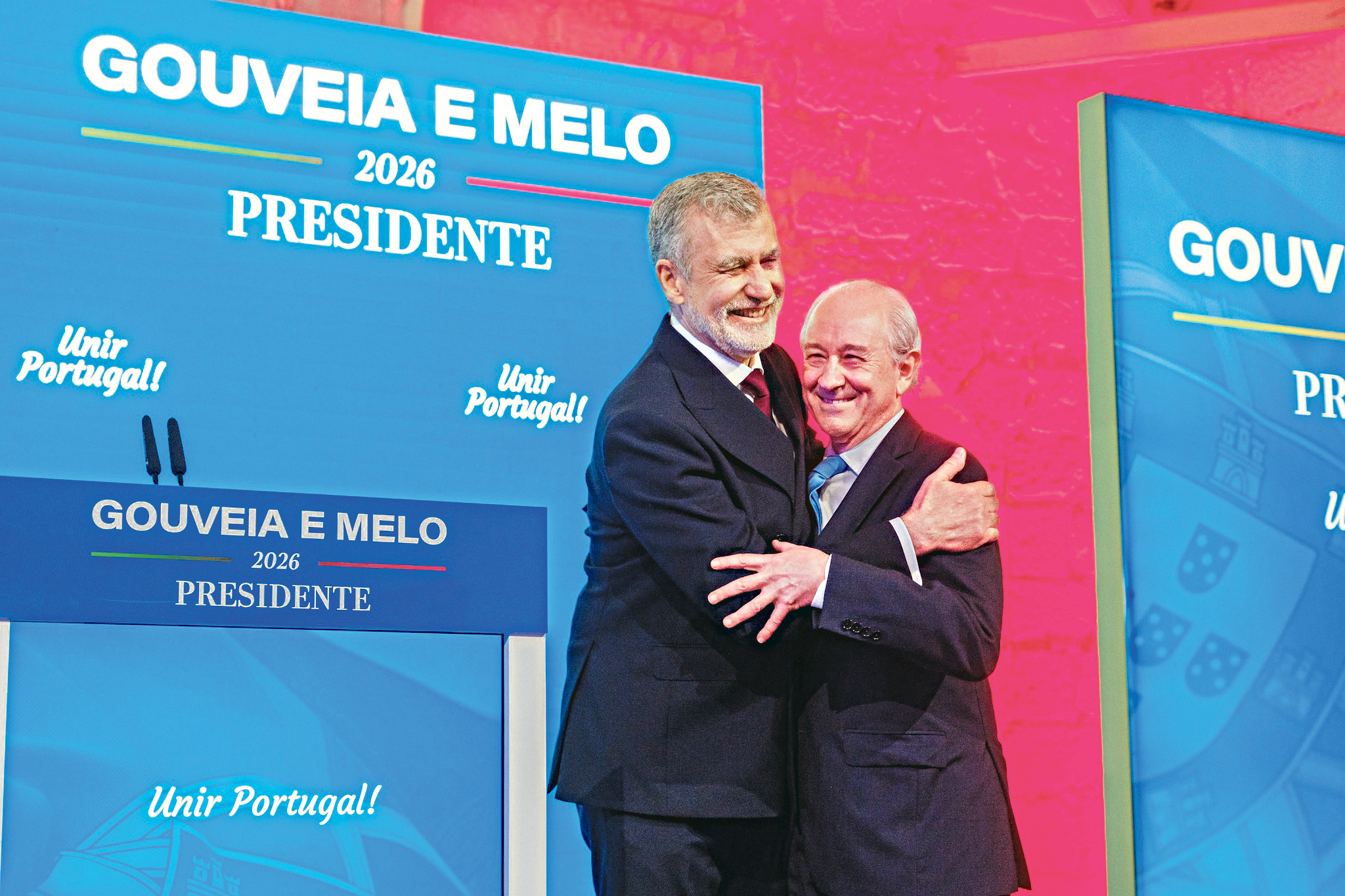The taxpayers' association criticizes the plans of the Union and SPD to the introduction of special funds.

Mr. Holznagel, have you already ordered new elements for your debt clock?
Reiner Holznagel: We actually consider a new one Debt clock to install. One that we can control from the distance if necessary. Especially at night because politics has now assumed a dynamic with a view to new debt that is terrifying.
Billions of special funds and a loosening of the debt brake: How much did you surprise that the presumably future coalitioners have announced such an extensive package on Tuesday evening?
Wood nail: In view of some statements from the political space, we were not entirely unprepared. The fact that a chain of negotiations was raised, in which the result is at the beginning and the details are only discussed, was very surprised and a bit angry me. It's like promising my children that we watch the film in the evening – and then tidy up. Everyone knows how that works.
What is your main criticism?
Wood nail: We don't have the problem of money, we have other problems. We have a « too much » planning, editions and bureaucracy. We have a say in uninvolved, keyword association law. Cameralism is a topic that does not have the quality of a double household management. And these are just a few examples. We would initially have to solve a bundle of tasks – and only at the end the money question has to be discussed. Now we have turned it over and I fear that we will be able to mastuce a lot with money.
Black and red has promised structural reforms in the election campaign. Nothing will become of it now?
Wood nail: Before the choice, there was the pressure that despite extremely high earnings for all regional authorities, we have to do something because the expenses run away faster than the income of this pace could even catch up with. This pressure was taken out with the overnight resolutions. This applies, for example, to one of the most problematic expenditure drivers, namely the pensionbut also for the municipal financial situation, the migration, the citizen benefit. Now everyone leans back and say: Will.
But it is not that at least more money for them Bundeswehr is necessary?
Wood nail: We have to be clear in the discussion Between the Bundeswehr and military capacity separate. In Germany, also in Europe, enormous sums of money are moved. In the end, however, we cannot agree on how this money is used. There is no idea of a common defense ability, no idea of a common upgrade strategy in the individual weapons segments and weapon equipment. But because a country alone cannot produce the necessary level, we have to bundle the forces and define exactly who does what. The Bundeswehr's white book must become a white book for Europe.
Mister Merz Didn't just put 400 billion in the room. He also said: Whatever IT Takes, it cost what it wanted. Is that actually a blank check or is it the important signal to the world that Germany is willing to really give everything for defense?
Wood nail: The structures that are to be created now have a blank checks identity because we no longer have cover components. This means that the budget and defense committee have completely free hand for the armaments area. Everything, What more than 1 percent of gross domestic product the debt brake is no longer interested in additional expenses. Nobody has to question whether the planning really makes sense. Because these problems no longer exist at this point, they no longer exist for the other ministries. Because the usual big tug of war in the federal budget is no longer necessary. Incidentally, this also applies to the European Union. The locks are up – and everyone can now do what they want. In the near future we will not have to expect any deficit procedures at European level.
The Federation of Taxpayers also rejects the new special fund of infrastructure for roads, rails and schools, although economists of all schools of thought are pleading for it. What do you know what the economic professors don't know?
Wood nail: Unlike many economists, we look at which specific projects are at the end. In Germany there is a confusion of responsibilities: we have the federal level, we have the state level, we have the municipalities. There are only a few projects left for which a level is specifically responsible. That is why we have a huge mixed financing. To put it bluntly, if I invite you all to the furniture store today and say that I take over 70 percent of the costs, then one or the other will buy a chair that he doesn't need at all. This is exactly what will happen with the money of a « special fund infrastructure ». The whole thing is exacerbated by the fact that every level is talking along and in the end nobody knows who actually made a decision. The special fund becomes a state self -service shop.
Friedrich Merz wants to create a Digital Ministry and at the same time reduce the number of government officials. At least you would have to find that good at the probably new coalition.
Wood nail: Unfortunately no. I criticized this from the start and think this is an absolutely not targeted idea. Or let's put it this way: it is a reaction to a popular demand. More digitizationG everyone wants, but a lot can hide behind this keyword. If we introduce ourselves to a ministry, there will be state secretaries, department heads, head of the sub -department and so on there, in addition to the minister. And ministries have the peculiarity to differentiate themselves from other ministries. Everyone guards their area and reluctantly lets themselves say something. It would be better to have a digital agency that specifies all the authorities in the software and hardware guidelines, i.e. proposes uniform programs and technology. The problem is that countries and municipalities do their own thing again anyway.
They are not a prophet, but they have been in Berlin for a long time. Will Friedrich Merz be the next chancellor?
Wood nail: Definitely. We have received a foretaste in the past few days: the adhesive mass of black and red are debts, the release for this they still get from the old Bundestag. The CDU has adjusted to GroKo faster than even one or the other Christian Democrat wanted to admit. And in the SPD, nobody puts on the map of being able to recover in the opposition.
To person: Reiner Holznagel has been President of the Federation of taxpayers since 2012. The association, the trademark is the black book of public waste, has been working as a representative of the taxpayers in Germany for three quarters of century. Holznagel, born in 1976, studied political sciences, public law and psychology in Kiel. He then worked as a press officer for the CDU Mecklenburg-Western Pomerania, among other things, in order to then make a career in changing positions at the Federation of Taxpayers.







